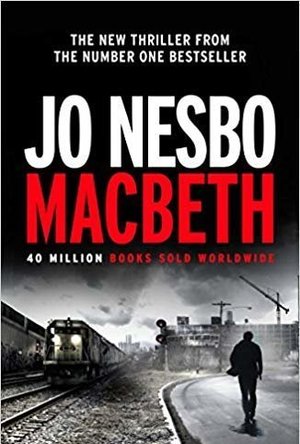Nesbo has done a really good job of moving the setting from medieval Scotland to modern Scandinavia (I think! That's what it felt like as I was reading anyway). The names of the towns in the original are the names of the casinos; the Queen of the witches, Hecate, is the main dealer and leader of organised crime in the town; Lady (Macbeth) is the owner of the most exclusive of those casinos.
Like Shakespeare's play, this book is grim, oppressive and ultra-violent. The body count is high, the murders committed without thought, or at least the only thought in Macbeth's head is that he will gain more power in the eradication of his 'enemies' and their families.
The description of the city portrays a poverty stricken, unemployment plagued, drug addicted, polluted northern town. These people seem to be accustomed to the corruption of their police and government officials, which is how the door opens to allow Macbeth to step through with Lady, his wife (who isn't his wife in this, but his girlfriend). Lady is the one who guides Macbeth's hand in everything he does, and then pays the ultimate price when guilt drives her mad.
I really do think that this is an excellent retelling. Five hundred pages went by in a flash for me, and I have to admit to a feeling of satisfaction as the story was wrapped up at the end.
Highly recommended!
Many thanks to NetGalley and the publisher for my copy of this book - and this is a totally unbiased review, people!
Deborah (162 KP) rated Fatal Colours in Books
Dec 21, 2018
First and foremost, the title of the book is a bit misleading. The Battle of Towton itself accounts for probably no more than a quarter of the text. I'm not saying the the rest of the book is bad, because it deals with the whole 'first half' of the Wars of the Roses and looks at how Henry VI's incapacity to rule (and the reasons for this) where in some degree responsible for the conflict, but it might be disappointing if you were expecting a full on coverage of Towton. You could try Andrew Boardman's book instead if you were interested in the battle.
My second disappointment was the introduction. Why would you ask Starkey, a well known Tudor historian, with a typical Tudor historian rabid anti-Yorkist views to write an introduction to a book ostensibly about one of the great Yorkist victories? This was one reason I held off buying this book for quite some time, not helped by the fact that the Kindle download sample was just part of this introduction, which wasn't helpful at all.
Goodwin delivered his own Coup de Grace in my eyes right at the end where he almost offhandedly accused Richard III of both the murder of his nephews (hotly debated, I admit, but without a shred of solid evidence) and then saying he 'probably' murdered Henry VI!!! Unless you take Shakespeare as gospel, there is absolutely no evidence at all for this and it's most unlikely. These couple of throwaway comments severely undermined Goodwin's credibility, which was a shame, as I felt that the book overall was good, but it makes me wonder if there was other sloppy research in there?

Free Audiobooks Pro- 4,727 audiobooks to go.
Book and Education
App
Ah, to describe an app in two words... Free Audiobooks is just that- Free Audiobooks! This is the...

Friendships in Constant Repair: Perspectives on the Life of Stephen Oliver
Book
Stephen Oliver was quite simply, one of the most talented composers of his generation. His premature...
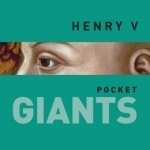
Henry V: pocket GIANTS
Book
Henry V is the best-known military hero in English history: better known than Marlborough or...
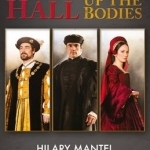
Wolf Hall & Bring Up the Bodies: RSC Stage Adaptation
Hilary Mantel and Mike Poulton
Book
A new, revised edition for the London transfer of Mike Poulton's expertly adapted two-part...
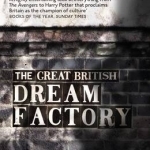
The Great British Dream Factory: The Strange History of Our National Imagination
Book
'Delightfully good ...an exuberant and learned celebration of British culture ...full of love for...
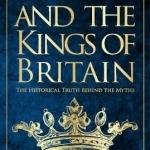
Arthur and the Kings of Britain: The Historical Truth Behind the Myths
Book
'Arthur himself, having put on a coat of mail suitable to the grandeur of so powerful a king, placed...
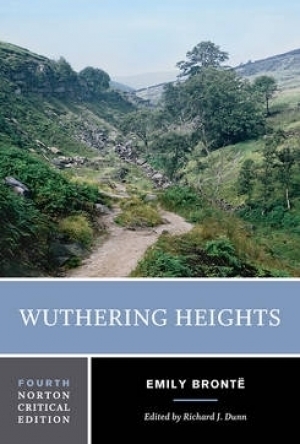
Wuthering Heights
Lucasta Miller, Emily Brontë and Pauline Nestor
Book
Emily Bronte's only novel, a work of tremendous and far-reaching influence, the Penguin Classics...
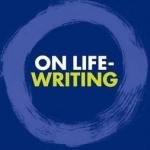
On Life-Writing
Book
Chapter 12 of this publication is open access, available under the terms of a CC BY-NC-ND 4.0...
